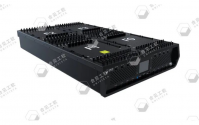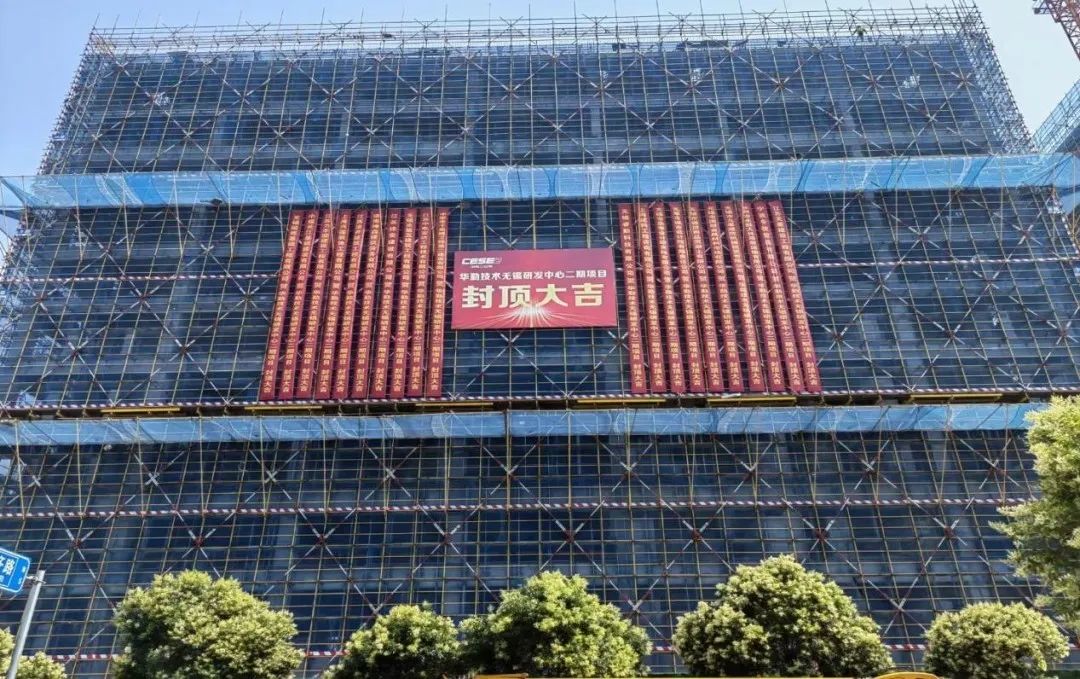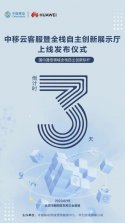group of Luo Xiaorong from Energy Integration Technology Laboratory of University of Electronic Science and Technology of China proposed a gallium oxide vertical FinFET with low reverse conduction loss in terms of the device's free rotation gallium oxide and using Low Reverse Conduction Loss β - Vertical FinFET Ga 2 O 3 with Integrated Fin Diodes has been published online
You are using an out of date browser. It may not display this or other websites correctly.
You should upgrade or use an alternative browser.
You should upgrade or use an alternative browser.
Chinese semiconductor industry
- Thread starter Hendrik_2000
- Start date
- Status
- Not open for further replies.
Keep your friends close, and your enemies closer. You want to know what your competitors are up to, what technologies they're developing, etc., if for no other reason than to gather intelligence.Ericsson should be banned from sales in China. Sweden does not allow Huawei to sell in Sweden either.
By contrast, through banning Huawei, the US and its allies essentially have no insight at all into how the company operates any more. There's barely been any detailed articles of Huawei's operations since the bans.
But naturally, I agree that they should never be allowed to have more than a very small market share.
Keep your friends close, and your enemies closer. You want to know what your competitors are up to, what technologies they're developing, etc., if for no other reason than to gather intelligence.
By contrast, through banning Huawei, the US and its allies essentially have no insight at all into how the company operates any more. There's barely been any detailed articles of Huawei's operations since the bans.
But naturally, I agree that they should never be allowed to have more than a very small market share.
We wouldn't know how Huawei operates because we have very few Chinese subject matter experts. Mandarin is particularly hard to learn for English speakers, and very few Chinese-Americans are employed at the very top level in think-tanks, congressional staff, or the President's cabinet.
How many Chinese-Americans do you see on the National Security Council? Council of Economic Advisers? President's Office of Science and Technology?
Pretty much Zero or next to Zero. So yeah, no surprise at all that United States is mostly blind when it comes to China on any topic, especially semiconductors.
But muh chatgpt machine translation.We wouldn't know how Huawei operates because we have very few Chinese subject matter experts. Mandarin is particularly hard to learn for English speakers, and very few Chinese-Americans are employed at the very top level in think-tanks, congressional staff, or the President's cabinet.
How many Chinese-Americans do you see on the National Security Council? Council of Economic Advisers? President's Office of Science and Technology?
Pretty much Zero or next to Zero. So yeah, no surprise at all that United States is mostly blind when it comes to China on any topic, especially semiconductors.
Spoiler : ChatGPT usually high as f when doing translation
Unless I missed it, no one posted this from today's WSJ:
"The Biden administration plans to allow top semiconductor manufacturers from South Korea and Taiwan to maintain and expand their existing without U.S. reprisals, according to recent remarks by a senior Commerce Department official.
. . . .
Last October, the U.S. implemented curbs on China’s semiconductor sector but it also provided one-year exemptions to several companies—including South Korea’s and —that have invested billions of dollars to build plants in China.
Those exemptions were set to expire in October. Estevez told a meeting of the Semiconductor Industry Association, a trade group, that the exemptions would be renewed for the foreseeable future, according to the attendees. The Commerce Department declined to comment."
"The Biden administration plans to allow top semiconductor manufacturers from South Korea and Taiwan to maintain and expand their existing without U.S. reprisals, according to recent remarks by a senior Commerce Department official.
. . . .
Last October, the U.S. implemented curbs on China’s semiconductor sector but it also provided one-year exemptions to several companies—including South Korea’s and —that have invested billions of dollars to build plants in China.
Those exemptions were set to expire in October. Estevez told a meeting of the Semiconductor Industry Association, a trade group, that the exemptions would be renewed for the foreseeable future, according to the attendees. The Commerce Department declined to comment."
Keep your friends close, and your enemies closer. You want to know what your competitors are up to, what technologies they're developing, etc., if for no other reason than to gather intelligence.
By contrast, through banning Huawei, the US and its allies essentially have no insight at all into how the company operates any more. There's barely been any detailed articles of Huawei's operations since the bans.
But naturally, I agree that they should never be allowed to have more than a very small market share.
We wouldn't know how Huawei operates because we have very few Chinese subject matter experts. Mandarin is particularly hard to learn for English speakers, and very few Chinese-Americans are employed at the very top level in think-tanks, congressional staff, or the President's cabinet.
How many Chinese-Americans do you see on the National Security Council? Council of Economic Advisers? President's Office of Science and Technology?
Pretty much Zero or next to Zero. So yeah, no surprise at all that United States is mostly blind when it comes to China on any topic, especially semiconductors.
I think the problem is the influence that Think Tanks and military contractors donors have over US foreign policies and in cases even domestic policies decisions, you have a lot of individuals, usually humanities graduates that because they wrote an article or a book doing minimal research on a complicated subject in a obscure think thank publication they think that makes them experts on those same pretty complicated subjects, they self-appoint themselves as speakers of entire industries and advocate for policies that could cost those same industries a lot of money and probably also huge job losses. The worst part is that they take advantage of the emotional hysteria, mental weakness and the lack of critical thinking that permeate some US politicians to push for narratives to get what they want. In fact their careers depend of pushing the narratives of their employees and donors.
Hejian Gongsoft will bring hard-core technology products to the Shanghai Science and Technology Innovation Exhibition Area of the Ninth Shanghai Fair
From June 15th to June 17th, 2023, the 9th China (Shanghai) International Technology Import and Export Fair ("Shanghai Fair") will be held at the Shanghai World Expo Exhibition Hall. As a provider of independent innovative high-performance industrial software and solutions, Shanghai Hejian Industrial Software Group Co., Ltd. ("Hejian Industrial Software") was successfully selected into the Shanghai Fair with its innovative achievement of the advanced FPGA prototype verification system UV APS, proving that In order to see that Gongruan insists on independent self-research, technological innovation and the strength of product application in high-tech fields. At the Shanghai Fair, Hejian Gongruan will bring a series of hard-core products to the exhibition area of Shanghai Kechuang.
Advanced FPGA Prototyping System UniVista Advanced Prototyping System (UV APS)
UniVista Advanced Prototyping System ("UV APS"), a new generation of timing-driven (Timing-Driven) high-performance, large-scale, flexible and scalable advanced FPGA prototyping system (UV APS for short), can help customers accelerate the verification process and advance software and hardware. Integrated development and testing, in which UVAPS-VU19P-Quad uses 4 VU19P FPGA devices of Xilinx Virtex Ultrascale+ series, supporting cascading of 20 devices. At the same time, UV APS also provides a wealth of FMC interface sub-cards to reduce the designer's extra time cost in the verification stage; cooperate with the in-depth debugging scheme to reduce the test process and speed up the chip launch. UV APS is widely used in various high-end chip markets such as high-performance computing, automotive electronics, artificial intelligence, communication networks, and GPUs.
Hejian Gongsoft will display the hardware system that carries the entire digital verification process - UV APS at the booth , and technical experts will also explain it on site. Welcome to the booth for practical operations.

The second phase project of Huaqin Technology Wuxi R&D Center was capped

According to the news from Wuxi Taihu Bay Science and Technology City, the second phase of the project covers an area of about 20 acres, with a total construction area of 58,690 square meters. The main construction is two high-rise scientific research office buildings, which are intended to meet the office functions of the first phase and combine with the existing landscape system to create an efficient, ecological and humanized scientific research office environment. The first phase of the R&D center will be put into use in August 2020, and the second phase is scheduled to be completed and put into use in December 2023.
It is reported that Huaqin Technology Wuxi R&D Center has a total investment of 700 million yuan. It will gather a R&D team of more than 5,000 people, focus on software, algorithms and testing of smart products, and build it into the largest software center, testing center and training center of the group.
Founded in 2005, Huaqin Technology Co., Ltd. is a global intelligent hardware platform enterprise. Products and services benefit more than 100 countries and regions around the world, and provide hundreds of millions of smart products to hundreds of millions of consumers every year, including smartphones, tablets, laptops, smart wearables, AIoT, data center products, automotive electronics, etc.
The total investment of Jingchuang semiconductor testing equipment project is 500 million yuan
on June 7, the 2023 Kunshan City (Shenzhen) Investment Promotion Conference was held in Shenzhen, the "City of Innovation", and 38 major projects with a total investment of 30.52 billion yuan were signed and landed. In this investment promotion meeting, Zhou Shizhen successfully signed 3 major projects, with a planned total investment of 1.05 billion yuan and an estimated annual output of 1.45 billion yuan.Among them, the Jingchuang semiconductor testing equipment project was established by Shenzhen Jingchuang Vision Technology Co., Ltd., planning to produce testing equipment for the semiconductor industry. The main products include high-precision crystal bonding machines, LDI exposure machines, etc., and is committed to becoming a leading company in the semiconductor equipment industry. The total investment of the project is expected to be 500 million yuan, and the annual output value will be 800 million yuan after it reaches production capacity.
- Status
- Not open for further replies.

